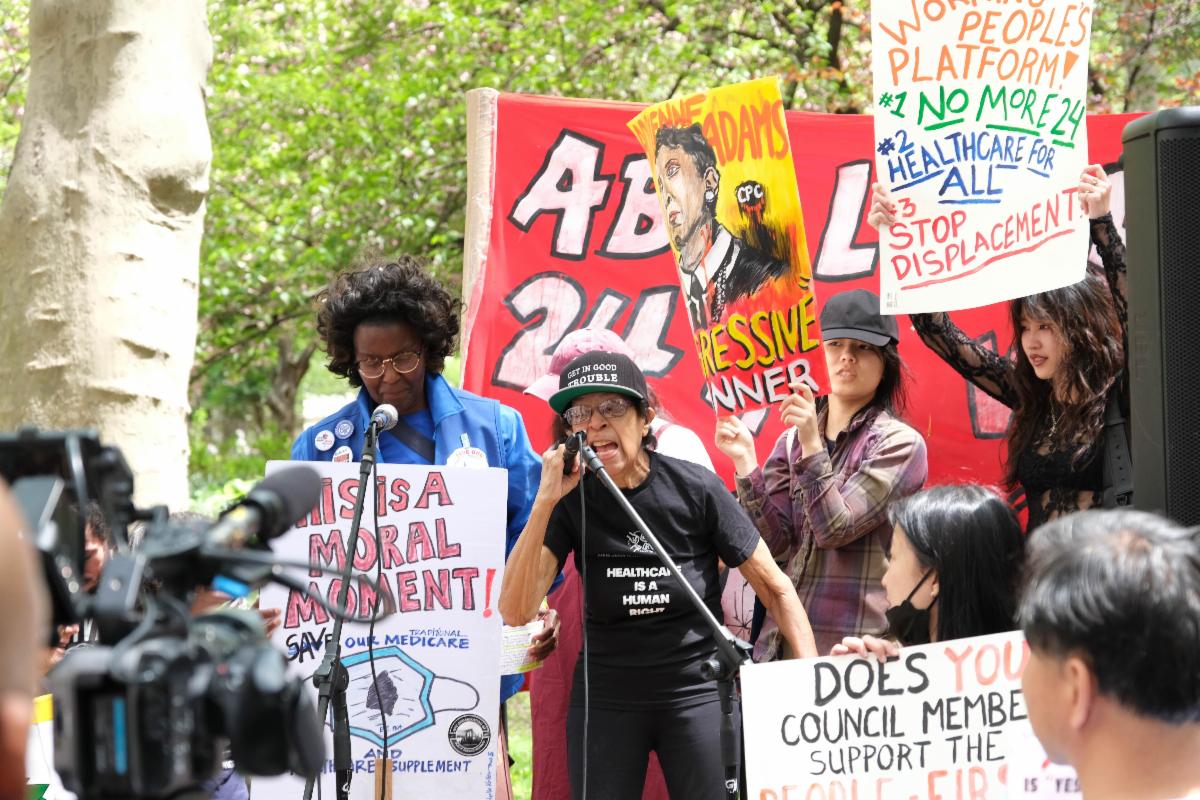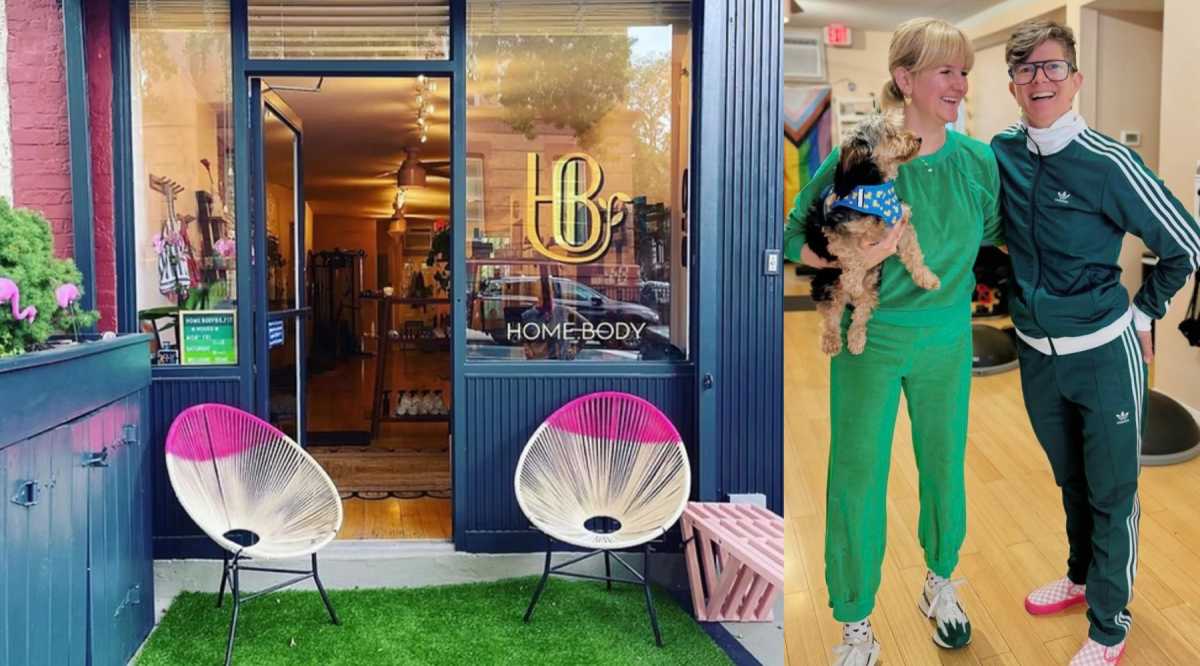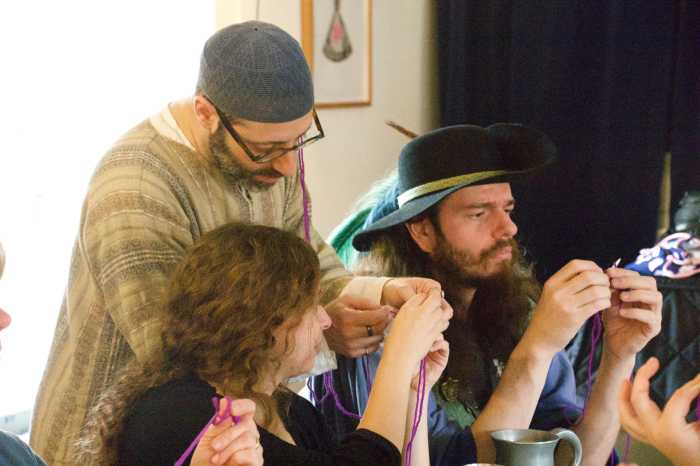A sunny day outside City Hall last month greeted a rally of some hundred people who stood together in support of reform for home health aides.
Set on the outskirts of Manhattan’s Chinatown, organizers provided Cantonese translations. Across the protest, several out LGBTQ people appeared as both attendees and co-organizers.
The rally, led by The Coalition to Fight for Our Health & Lives, called on New York City to abolish labor policies that allow for home care aides to work for 24 hours, but only receive 13 hours worth of pay.
They chanted of “No More 24″ — referring to 24-hour work days — and voiced frustration at City Council Speaker Adrienne Adams because legislation proposed at the city level to address the issue has yet to move forward. However, the problem may be more complex than the city can address alone — and any intervention could require the state to step in.
Regardless of responsibility, the systemic failures to protect the rights of these home care aides has left some LGBTQ Chinatown activist leaders frustrated. Women of color, particularly migrant women, have been the most impacted by such policies. Organizers with the Chinese Staff and Workers’ Association found that such workers are 90% women, 60% immigrant, and 18% low-income — and those numbers are backed up by the Office of Attorney General Letitia James. The demographics are not disaggregated by sexual orientation or gender expression.
In a 2021 report, New York State Assemblymember Ron Kim found that some of these women were working as long as 96 hours and denied their legally protected five hours of undisturbed sleep. Some were working for as little as $10 per hour, $6.50 less than city minimum wage, and many were denied overtime pay. Ain’t I A Woman?! collected testimonials and found that many have experienced physical, and sometimes, permanent injury.
“[This] really affects women of color, which I’m sure many of them are also of the LGBT community,” said Sarah Ahn, an out and proud campaign organizer for the Ain’t I A Woman?! Campaign and member of the Coalition to Fight for Health and Life. “We have a unique responsibility and role to not let our LGBT representatives also use their representation and they’re not coming out in support of the things that we need.”
In 2022, Manhattan Councilmember Christopher Marte of District 1 introduced Intro 0175-2022, dubbed the No More 24 Act, which called to limit home care aides to a maximum of 12 hours for any one shift, or within any 24 hours period, and 50 hours within a week. Under that proposal, a home care aide could be assigned additional hours in the event of an emergency.
In 2024, the bill was re-introduced as Int. 0615, and the updated version increased the 50-hour threshold to 56 hours “provided that the employer provides two weeks advanced notice and obtains written consent from the home care aide.” That bill has not been taken up by the City Council.
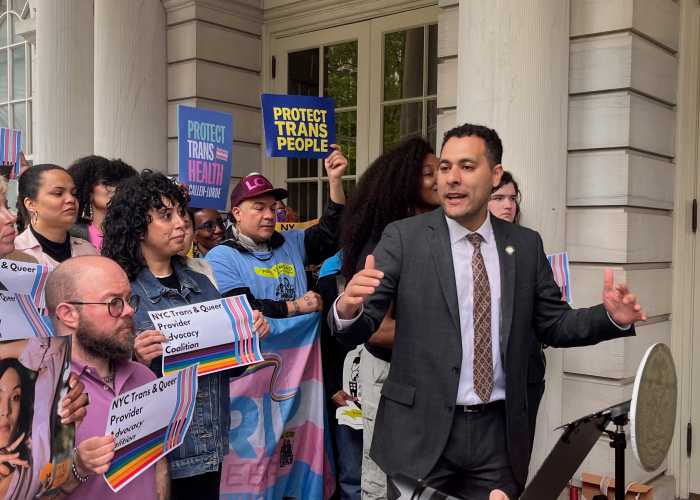
When asked to comment on the legislation, a spokesperson for Speaker Adams made the case that the responsibility to change the law surrounding home care workers rests with the state, not the city.
“Speaker Adams supports increased wages and improved working conditions for home care workers, which must be achieved at the state government level through its power over Medicaid and home healthcare regulations,” the City Council spokesperson said. “That’s why Speaker Adams sponsored a resolution that the City Council passed to support action from the State Legislature and governor to achieve these fair outcomes. Speaker Adams and Council Members strongly support economic justice for these workers, but the fact is that the City Council cannot deliver changes that require state action.”
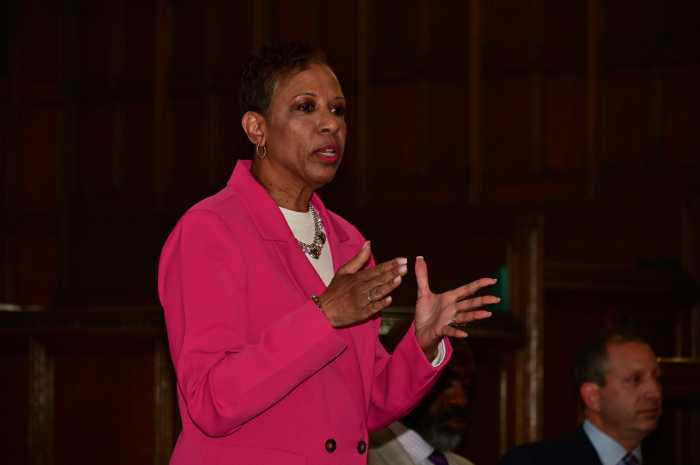
That resolution passed the City Council unanimously, while Int. 0615 has yet to move. Despite the speaker’s insistence on state action, Marte’s office maintained that the city does, indeed, have the power to address the issue. The bill, his office said, was vetted by the City Council’s legal team before it was introduced.
The Legal Aid Society represented 140 of the home care aides who were not paid in full. The organization uncovered a loophole between split-shift 24 hours coverage, where a patient is required to receive 24-hour care, or a live-in home care aide, and determining hours of care can be harder to prove.
“Medicaid managed care plans will often use the premise of live-in as a means to avoid authorizing split-shift 24-hour coverage,” the organization wrote in a 2022 testimony. “[A]gencies presume that [‘live-in shifts’] aides spend eight hours of the shift sleeping and three hours of the shift eating meals to justify a funding scheme that does not pay aides for all the hours they are actually working.”
For the bill to be fully effective, The Legal Aid Society indicated that the No More 24 Act would need other state-based reform.
“Our clients […] frequently face reductions and denials of care that violate statutes, regulations, or state policies or contracts,” the 2022 testimony said. “[W]ithout reforms to the long-term managed care system on the state level, the result will be that agencies and employers will turn away consumers authorized for ‘live-in’ services, and people simply will not receive medically necessary care.”
Queer people in and beyond the Chinatown community view the fight for labor rights and the fight for LGBTQ rights as one and the same.
“You have a lot of LGBTQ organizers, such as myself, very much a part of this movement,” Ahn said. “This whole system is fueled by racism, sexism, and homophobia.”
Casey Sheila, a trans organizer with Youth Against Displacement, a youth group that fights displacement in Chinatown, emphasized that LGBTQ individuals and immigrants can collectively deliver powerful change if they can united around the common cause.
“I think immigrants and queer people are both targeted a lot,” Sheila said. “And so we can create strength by coming together.”

